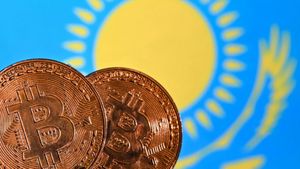JAKARTA - On September 29, the IMF published a working paper entitled "Assessing Macrofinancial Risks from Crypto Assets" (Revaluating Macrofinance Risks from Crypto Assets).
In the paper, Burcu authors Hacibedel and Hector Perez-Saiz proposed a crypto risk assessment matrix (C-RAM) used by the state to identify indicators and trigger potential risks in the crypto sector. This matrix also aims to summarize regulator potential responses to identifiable risks.
The matrix includes a three-step approach. The first step involves the use of decision trees to assess crypto macro criticality or its potential impact on macroeconomics.
The next step involves examining indicators that can be compared to those used to monitor the traditional financial sector. The final step includes global macrophinance risk affecting the country's systemic risk assessment.
For example, the author applied C-RAM to identify risks in El Salvador, a country that made Bitcoin a legal tender in September 2021. According to the paper, the use of BTC in El Salvador poses market, liquidity and regulatory risks.
"The use of crypto assets in El Salvador can also be seen as macro-critical because recent regulatory and legal changes pose a substantial risk of cryptoization in the country, which could undermine financial stability and affect major remittances and other capital flows," the author said.
اقرأ أيضا:
The IMF has consistently opposed El Salvador to adopt Bitcoin. In January 2022, the IMF pushed the Central American country to revoke Bitcoin's legal tender status.
According to the IMF, using BTC as legal tender carries a "big risk" in terms of financial stability, financial integrity, and consumer protection.
As the crypto sector thrives, regulators are trying to catch up in responding to potential risks in this new space. On September 7, the IMF and the Financial Stability Board collaborated in a joint paper containing policy recommendations, at the request of India's G20 presidency.
The paper combines consolidated standards and recommendations for various risks related to crypto activity.
The English, Chinese, Japanese, Arabic, and French versions are automatically generated by the AI. So there may still be inaccuracies in translating, please always see Indonesian as our main language. (system supported by DigitalSiber.id)


















